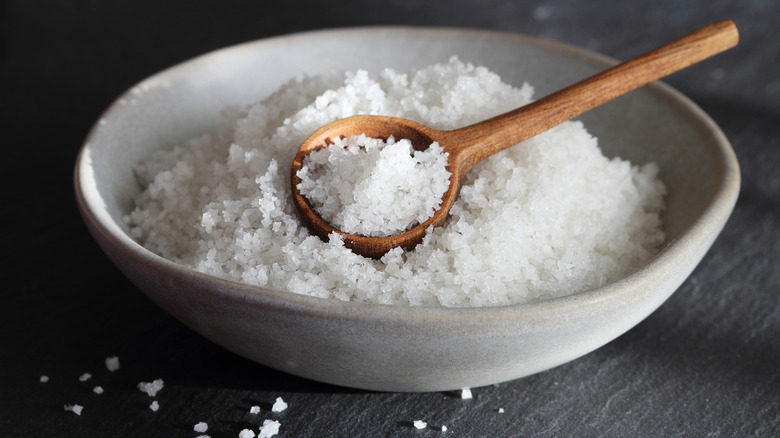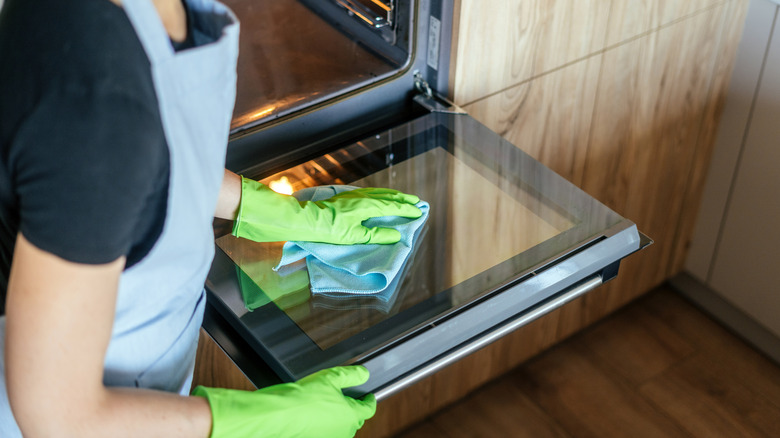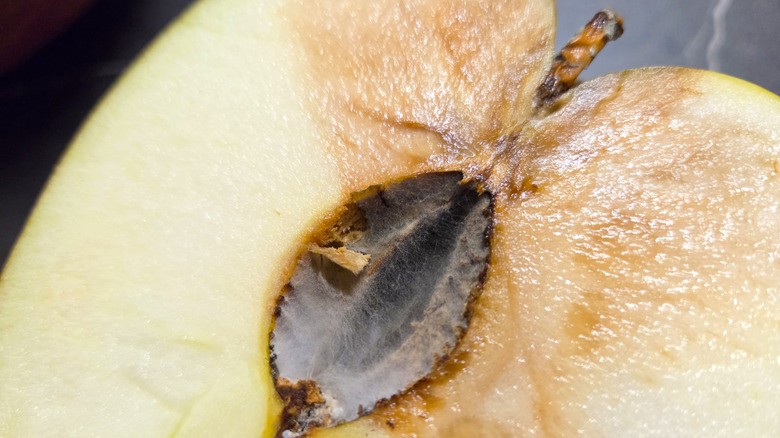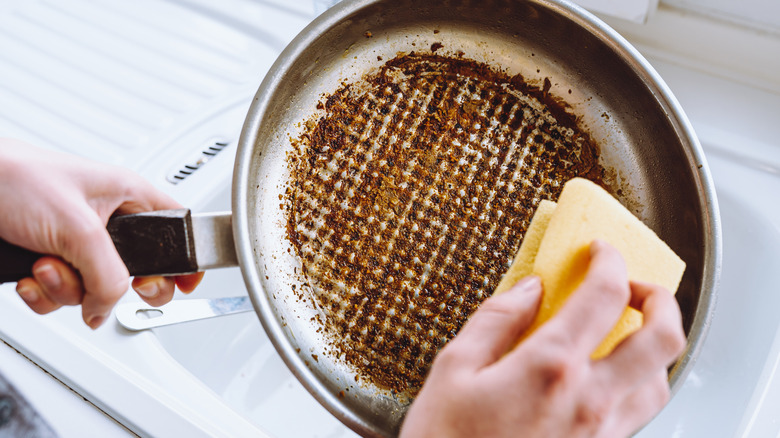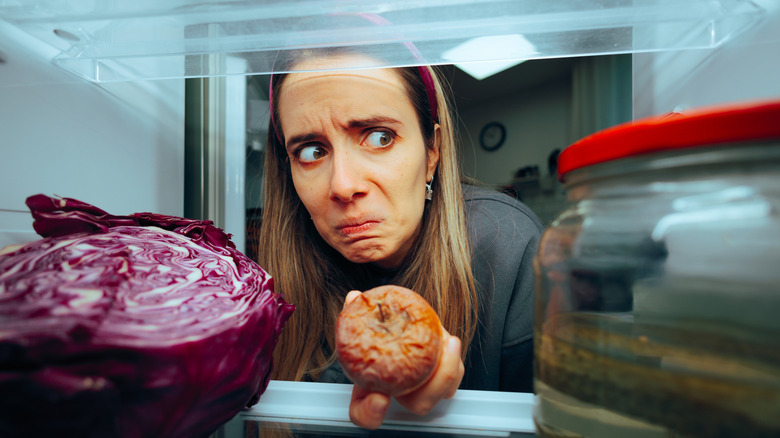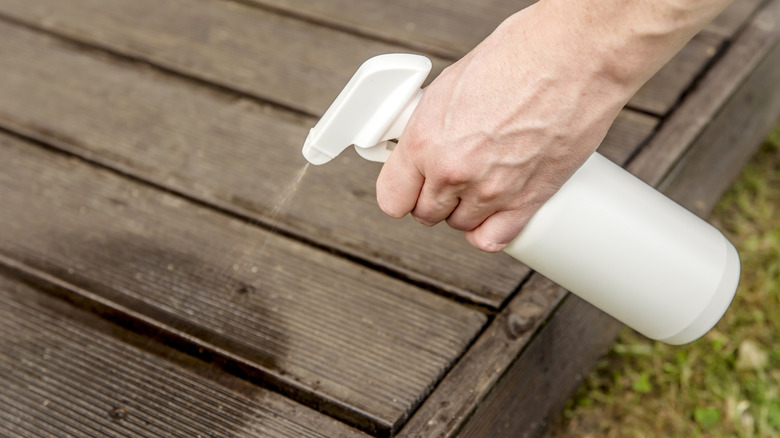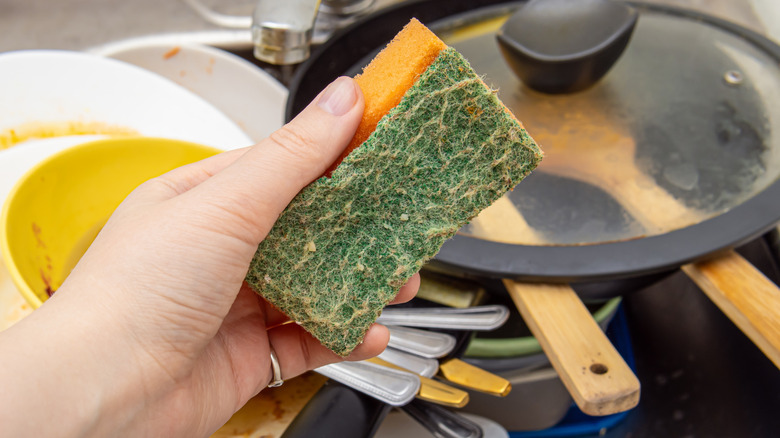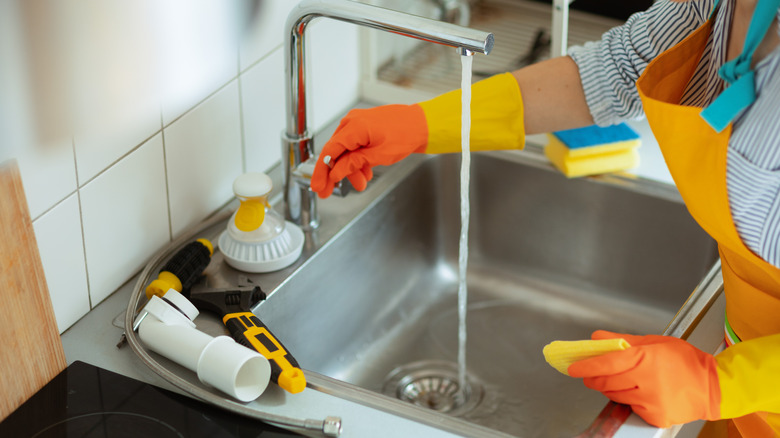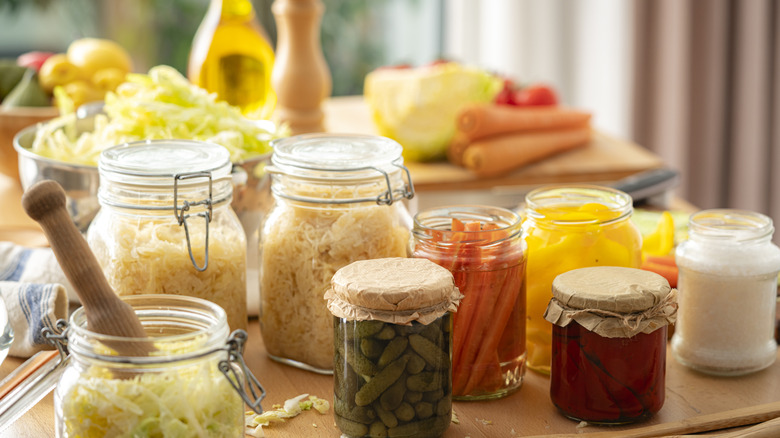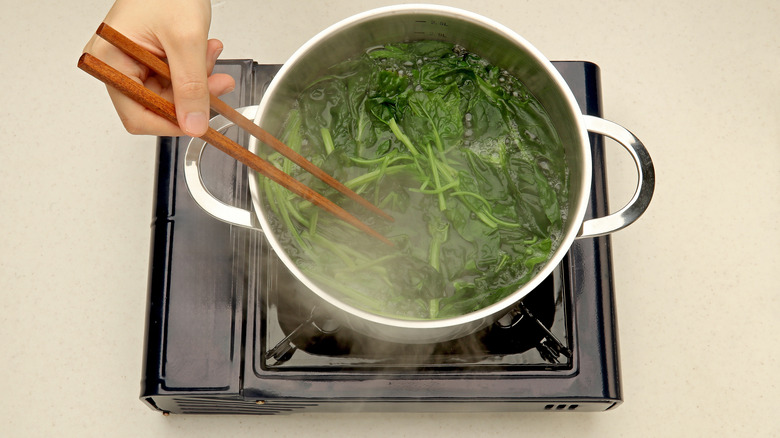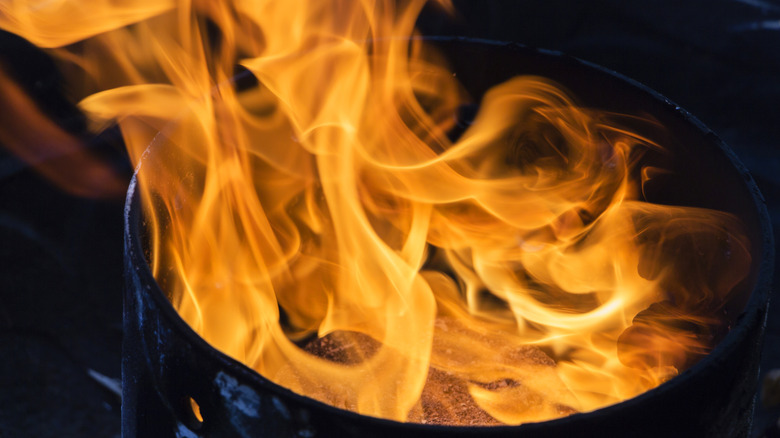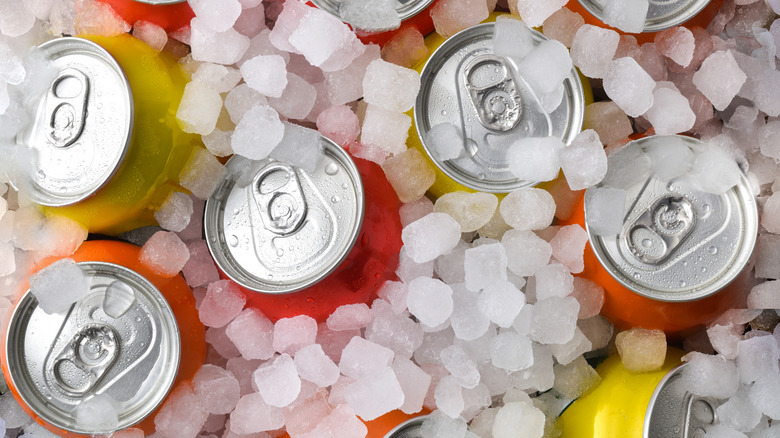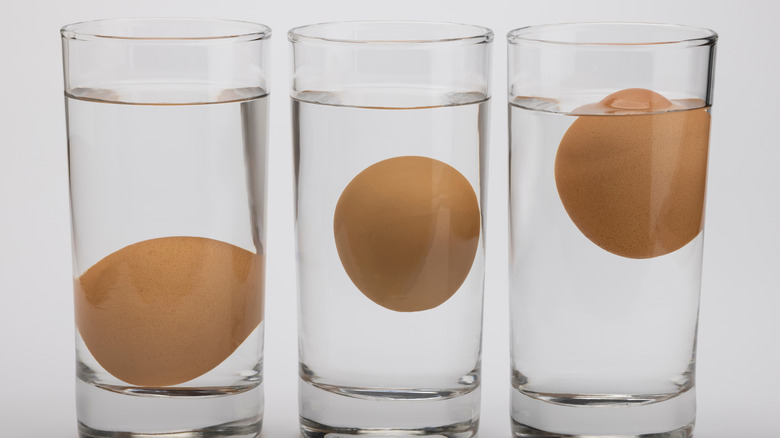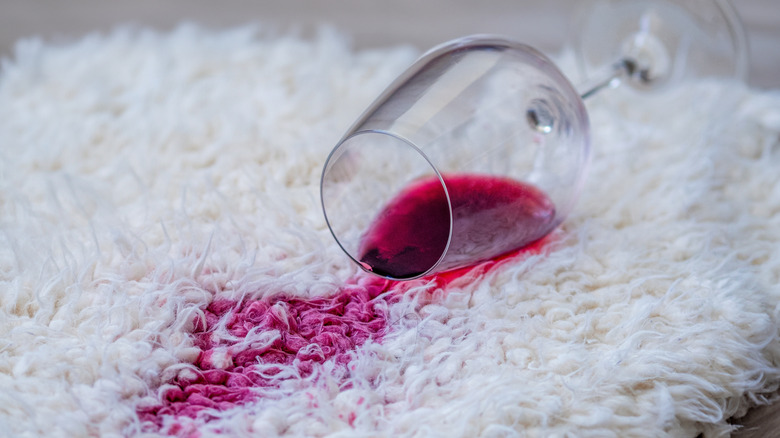13 Ways To Use Salt In Your Kitchen Beyond Seasoning Food
Salt, that indispensable seasoning agent found in all kitchens, has many practical uses beyond its role as a taste enhancer. Whether you use it as an organic cleaner, stain removal agent, or ant deterrent, salt has found many useful applications in the kitchen and around the house.
Chemically known as sodium chloride (NaCl), salt was once highly valued as a rare commodity. Centuries ago, it served as both a form of currency and one of the main preserving agents for food. Today, it is widely available and can also be used as a cheaper alternative to some modern-day chemicals. Not only is salt a mild disinfectant, but its coarse and granular nature gives it cleaning superpowers, and its ability to absorb water and odors allows it to work as a natural deodorizer. When put to the test, salt proves to be so much more than seasoning for french fries and is a winner in several surprising ways.
Deep clean oven, stove, and fridge
Apart from being an essential ingredient for cooking, salt can also be used as an effective deep cleaner for your fridge, oven, and stove. Cleaning your fridge every few months (or at the very least twice a year) will help eliminate any lingering odors that tend to accumulate over time. An effortless way to do this is to mix ½ cup salt with around ½ gallon of warm water, then dip a soft cloth or sponge in the solution and scrub the interior. Thanks to salt's abrasiveness, stubborn stains can be easily removed with the help of this simple homemade solution.
For your oven, it is best to clean up spills as they occur. Sprinkle a mix of 6 parts table salt and 1 part cinnamon powder over the affected area. Wipe it off after the oven has cooled down. The mixture will help absorb the spill and any smells. Even persistent odors of burnt food can vanish with this easy hack.
Cleaning a dirty stovetop, on the other hand, can prove to be quite a challenge, especially if there is a lot of accumulated grime. A straightforward remedy is to mix 1 tablespoon each of salt, baking soda, and water until a thick paste forms. Use a dishcloth to apply this paste to the dirty areas before scrubbing them with a dry cloth. Then use a damp cloth to wipe away the dirt or rinse and dry.
Prevent browning of fruit
Foods such as apples, pears, and potatoes will discolor if cut and left exposed to the air. This browning occurs because of a normal reaction that happens when the fruit or vegetable's surface comes in contact with the oxygen in the air. This process can be prevented by stopping or slowing down the enzyme responsible. The easiest way to prevent fresh produce from browning is by dipping or storing it in a saltwater solution. The salty liquid acts as a barrier, preventing oxygen from reacting with the food's surface.Soaking the fruit in salt water also breaks up the browning enzyme's protein structure. In turn, this prevents the discoloration response.
To keep your produce looking fresh, soak the slices in mildly salted water for a few minutes. About ½ teaspoon of salt per cup of water is more than enough. Then, drain the salt water, rinse the fruit thoroughly, and let it dry before storing it in an airtight container. Be sure to rinse off the salt water, or you will be left with an unpleasantly salty snack! This quick and straightforward method is one of the most effective ways to maintain the crisp taste and appearance of your fruit.
Cleaning greasy cookware
Your shiny new pots and pans can begin to look really old and tired with regular use, even though you have been scrubbing them regularly. The stubborn grease and food stains that accumulate over time also make cooking more difficult. Meanwhile, vigorous cleaning can scratch and pit the surface, ruining your precious cookware.
Instead of blowing money on an overhyped cleaning solution, a simple remedy is to use salt. Sprinkle some coarse salt over the affected areas on your pots or pans, along with a few drops of dishwashing soap, and let it sit for about 10 to 15 minutes. Scrub it off with a brush or sponge. Salt's abrasiveness can break down the grease, making it easier for you to clean up without using harsh chemicals. The trick is to apply the salt as soon as you're done cooking, as its absorbent properties will help soak up the oil and prevent it from sticking too firmly to the pan. Thanks to its mild antibacterial powers, salt also has the added benefit of sanitizing when cleaning these tough stains.
Neutralizing odor
Salt has long been valued as a natural odor eliminator and has been used for this very purpose for centuries. Sodium chloride has a neutral pH, which helps eliminate surrounding odors. While some specially treated salts are artificially made more absorbent to soak up bad smells, never fear — your regular table salt is quite effective for everyday use to tackle this issue.
Because salt is hygroscopic (meaning it absorbs moisture), it naturally excels at neutralizing odors, including those food odors that linger in your fridge. Simply place a small bowl of salt in your fridge and allow it to work its magic. It is also effective for deodorizing your clothes and against accumulated sweat odors, helping to freshen up musty-smelling gymwear. All you need to do is dissolve ½ cup of salt in a bucket of hot water and leave your clothes to soak overnight. Wash them as usual in the morning, and you will be amazed at how fresh they turn out.
Deter ants
Summer is when ants tend to make their unwelcome appearance, and dealing with an infestation can be a real nuisance. Salt acts as a natural deterrent to the insects and can be used to help with the problem to a certain degree. While it can surely be used as a first line of defense, salt alone may not be enough to tackle the source of the issue. Sodium chloride may be effective against ants because it absorbs water from the air and surroundings, causing lethal dehydration and damage to their respiratory systems. As a result, the insects tend to avoid salt.
All you need to do is sprinkle it in the zones where ants have been spotted. A line of salt can stop them in their tracks, and spraying them with salt water may even kill them on contact. Most ants will avoid areas with sodium chloride, but that alone will not solve the problem, especially in cases of a large infestation. Unless you locate the nest with its queen, you will not be able to completely eliminate these pests. Still, using salt is a natural way to keep them out of your kitchen and hopefully save you from asking, "How safe is food that ants have crawled on?"
Restore a washing sponge
The kitchen sponge that you use to scrub your dishes, clean your sink, and wipe up spills is probably the dirtiest thing in your kitchen, a breeding ground for germs and bacteria. A 2017 scientific study found that there are more microbes in kitchens than toilets, and sponges are one of the major contributors. A dirty sponge can harbor bacteria like salmonella and staphylococcus, which can enter our bodies and cause serious foodborne illnesses. Therefore, paying attention to your sponge is vital. This is where salt can help.
Salt is known to kill certain strains of bacteria by drawing moisture out of them. To clean your sponge, rinse it with warm water to get rid of any accumulated debris. Fill a container with warm water and add ¼ cup of any type of salt. Once the salt has dissolved, leave your sponge completely submerged in the solution for a few hours. Then, remove it and squeeze it dry before rinsing again. This method eliminates much of the bacteria, though not all, so it's equally important to know when to toss your kitchen sponge.
Clear kitchen drains
Online forums are full of differing opinions about whether we should pour salt and hot water down our kitchen drains. Some even insist that this should be done at night. So, what's the reasoning behind it, and does it actually help?
Remember that salt, especially the coarse varieties, is naturally abrasive. Adding kosher or rock salt to the drain and washing it down with hot water may accomplish a few things. Firstly, bits of stuck food should get jolted loose and rinsed off. Salt also helps break down grime when mixed with baking soda or vinegar. If you have mistakenly disposed of things you shouldn't put down the drain, pour in ½ cup of salt and 1 cup of baking soda. Follow it with 1 cup of vinegar. The resulting foaming reaction helps loosen deposits and disinfect the pipes as it passes through. Ideally, you should let the solution sit overnight for the most effective drain cleaning.
As for the belief that this should be done at night, it's nothing more than a practical suggestion since the sink won't be used much, and the mixture can continue doing its job uninterrupted. In the morning, run hot water down the drain. To protect your pipes (especially if they're PVC), avoid using boiling water. This procedure works best as a regular monthly cleaning, rather than for severely clogged drains with hardened grease.
For pickling and fermenting
Whether you are simply nostalgic for your grandmother's pickled veggies or are trying your hand at new things, old-fashioned brined pickles are back in fashion. This method of preserving and fermenting vegetables has been used for centuries across the globe. Forget vinegars and boiling jars; brined lacto-fermented pickles don't even need a refrigerator to stay fresh. Aside from being extremely easy to make, this fermented food offers numerous health benefits. Eating it regularly can help improve gut health by increasing the amount of probiotics in the digestive tract, essential for good digestion. All you need is a bounty of vegetables, water, salt, a few herbs and spices, and a cool, dry place to store the jars.
How much salt, you ask? Well, there's a simple formula to follow that has stood the test of time. 1 to 3 tablespoons of salt per quart of water should keep things ticking along just fine. You must closely monitor the salt levels when lacto-fermenting, though. Too much salt can hinder the fermentation process, while not enough allows the bad bacteria to proliferate, potentially leading to spoilage. The type of salt used also matters. Rather than iodized table salt, it is recommended to use kosher, pickling, or unrefined sea salt, all of which are rich in vitamins and minerals. You can stick to the traditional methods or experiment with different techniques of fermenting with salt, such as dry brining or pre-brining.
Lock in color when cooking
Another culinary application with salt that goes beyond seasoning, blanching greens like spinach and herbs with salt prevents the vegetables from losing chlorophyll and helps them retain their brightness. Tap water is the best liquid for blanching veggies, and then the process is as simple as boiling them and shocking them in ice-cold water.
Speaking of retaining color, adding a pinch of salt to your dough helps bring out the golden brown hue in pastries like croissants. If you need to prevent your avocados (or guacamole) from browning, a light dusting of salt also slows oxidation. It also helps tomatoes cook down evenly while keeping their vibrant red color.
In addition, sprinkling salt on meats before grilling not only accentuates the taste and flavor, but it also promotes caramelization and searing (known as the Maillard reaction), creating a more intense, juicy texture. Salt draws out moisture and speeds up the formation of that enviable golden crust.
Put out small grease fires
Grease fires are the stuff of kitchen nightmares. They are also one of the most common and dangerous kitchen accidents. Grease fires are caused when oil is heated beyond its smoking point. Once the oil ignites, the pan and its contents suddenly burst into flames. The best way to avoid grease fires is through prevention. Never leave a pan with oil unattended. If you notice it smoking, remove it from the heat immediately, before it catches fire.
Still, accidents can happen, and when faced with an emergency like this, knowing what to do in the moment is crucial. While throwing sand on your flaming pan is often cited as the most effective way to deal with a flaming pan, let's be honest, it is not something we have lying around in our home kitchens. In place of sand, handfuls of salt can be thrown atop small grease fires for immediate relief. Working in much the same way as sand, the salt absorbs the heat rapidly and separates the fire from its fuel supply (the oil), effectively extinguishing the flames. You can also cover the pan with a metal lid or another pan to starve the fire of oxygen. Never use water, though, as it can spread the grease around and cause the flames to expand rapidly. Staying calm and acting swiftly with these simple steps can make all the difference.
Chill beverages fast
TikTok and YouTube are full of clever videos that promise to get your party started in no time at all. Many of them involve learning how to chill your beer, wine, and soft drinks in a matter of minutes. All it takes is a bowl of water, ice, and heaping tablespoons of cooking salt. This technique works on the principle that salt speeds up the melting of ice. To do this, the salt needs to draw heat from anywhere possible — in this case, the cans or bottles — which means the beverages get colder more quickly.
Salt lowers the freezing point of water. Normally, water turns to ice at 32 degrees Fahrenheit, but sodium chloride interferes with the freezing process. Essentially, you're creating an ultra-cold saltwater bath that's more effective than plain ice. Science aside, according to the bartenders and flight attendants on Reddit, this is a technique used since time immemorial to get their drinks party-ready fast. Cool, right?
Test for rotten eggs
In August 2025, eggs were recalled across 14 states due to an outbreak of salmonella food poisoning. At the time of this article's publication, the outbreak had affected 95 people and resulted in 18 hospitalizations –– all this to highlight just how risky eating contaminated eggs can be.
Determining whether an egg is still fresh can be tricky, but there are some easy at-home tests that help. For example, immerse the egg in a glass of water to see if it floats. If it sinks and goes horizontal, it's likely fresh, whereas if it floats to the top, it's almost certainly too old for consumption. If the results are proving difficult to decipher, using salt can make the float test even simpler. Take two glasses of water and add 1 tablespoon of table salt to each. The salt increases the buoyancy, making it easier to detect bad eggs. The float test is not a reliable way to detect salmonella, but it can help determine which eggs are older and may be more susceptible to contamination. This method works because the amount of air inside an egg increases over time, meaning it becomes less dense and floats more easily as it ages.
Remove wine stains
To mention another effective use of salt beyond kitchen seasoning, let's talk about one of the most common mishaps: spills. Whether it's a nasty wine accident on a tablecloth or clothes, salt can come to the rescue almost instantly. One of the simplest ways to remove the spot is to dampen the area with a cloth or paper towel and then pour a cup (yes, a whole cup) of salt on the area. The salt will help soak up all the spill and prevent the stain from seeping into the fabric. It's also an easy hack that saves you from using harsh cleaning agents and reduces toxic exposure in your home.
Remember to let the salt soak for at least 10 minutes. Once the area has dried slightly, vacuum or brush away the salt, then steam clean the spot to restore it to its original look. If the stain persists, repeat the procedure. You could also throw the garment into the washing machine afterward.
